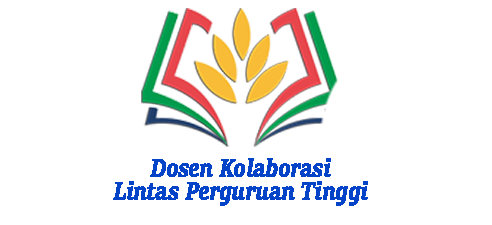Enhancing Islamic Educational Institutions Within Philanthrophic Attitude; The Way On Waqaf Role In Aceh
Keywords:
Islamic Education, Philanthrophic Attitude, Waqaf RolesAbstract
Waqaf is one of the key success factors in financing the educational programs among Muslim people in the entire world. It has been identified with the fervent roles, especially to support Islamic education. Overwhelmingly, waqaf has widely been used in enhancing the educational development and student empowerment as part of communal solidarity and attitude among Islamic society. Meanwhile, this paper intent to examine the spirit of philanthropy among Muslim people in supporting the Islamic educational institutions based on the aspects on waqaf contribution. It is remarkable, the study showed how the waqaf system has been perceived as an significant factor, and whether the spirit of generosity among Muslim society towards the Islamic education is reflected through the waqaf tradition. Besides, the study also showed how the waqaf played the significant roles in supporting the Islamic traditional education in Islamic history, and become the important source for many Islamic organizations since waqaf properties are utilized for the purpose of facilitating and supporting the educational processes.
References
Ali, Imtiaz B. (2009). Waqaf, A Sustainable Development Institution for Muslim Communities. Trinidad and Tobago: Takaaful T&T Friendly Society.
Ahmad, Md. Mokhter & Safiullah, Md. (2009, October). Management of Waqf Estates in Bangladesh: Towards a Sustainable Policy Formulation. Kuala lumpur.
Ahmad Zaki Hj Abd Latiff, Che Zuina Binti Ismail, & Norzaidi Bin Mohd Daud. (2006, September). Pengurusan Harta Wakaf Dan Potensinya Ke Arah Kemajuan Pendidikan Umat Islam Di Malaysia. Kuala Lumpur.
Esmaeili, Hossein. (2009, October). The Relationship between the Waqf Institution in Islamic Law and the Rule of Law in the Middle East. Kuala Lumpur.
Hajah Mustafa Mohd Hanefah, Abdullaah Jalil, Asharaf Mohd Ramli, Hisham Sabri, Norhaziah Nawai & Syahidawati Shahwan. (2009, October). Financing the Development of Waqf Property The Experience of Malaysia and Singapore. Kuala Lumpur.
Hasan, Sami. (2006, July). Muslim Philanthropy and Social Security; Prospects, Practices, and Pitfalls. Bangkok.
Islamic Relief Malaysia- Communication Unit. (2008). Waqf; The Eternal Legacy; Activity on Waqaf. http://www.irm.org.my.
Kahf, Monzer. (2003, Jan). The Role of Waqaf in Improving the Ummah Welfare. Paper Presented in International Seminar on Waqaf as a Legal Private Body organized by the Islamic University of North Sumatra. Medan, Indonesia.
Khan, Mohammad Sharif. (1990). Education, Religion and the Modern Age. New Delhi: Ashish Publishing House.
Lukens-Bull, Ronald A. (1999). Between Text and Practice; Considerations in the Anthropological Study of Islam. University of North Florida. Marburg Journal of Religion. Volume 4, No.2.
M Adli Abdullah. (2010, Januari 18). Blang Padang Siapa Punya?. Opinion Rubric at Serambi Indonesia Daily News. Banda Aceh.
M Hasbi Amiruddin. (2006). Program Pengembangan Dayah di Aceh. Banda Aceh: IAIN Ar-Raniry.
Mohsin, Magda Ismail Abdel. (2009, October). Family Waqf Its Origin, Law Prospects. Kuala Lumpur.
Mukhlis, T. (2010, March 1). Dayah; Antara Tradisi Dan Tantangan Modernitas. Banda Aceh: Aceh Institute.
Nazli Ismail. (2006, March 18). The Lost of Dayah Manyang. Banda Aceh: Aceh Institute.
Norhaliza binti Mohd Nor & Mustafa Omar Mohammed. (2009, October). Categorization of Waqf Lands and Their Management Using Islamic Investment Models the Case of the State of Selangor, Malaysia.
Razali Othman. (2006, February 24). Poverty Reduction; Does the Institution of Waqf Help. Malaysian Young Professionals and Entrepreneurs Chamber (MYPEC).
Uswatun Hasanah. (2009, Juni 24). Potensi Wakaf Untuk Pembangunan Perumahan Rakyat. Badan Wakaf Indonesia (BWI).
Published
How to Cite
Issue
Section

This work is licensed under a Creative Commons Attribution-ShareAlike 4.0 International License.













